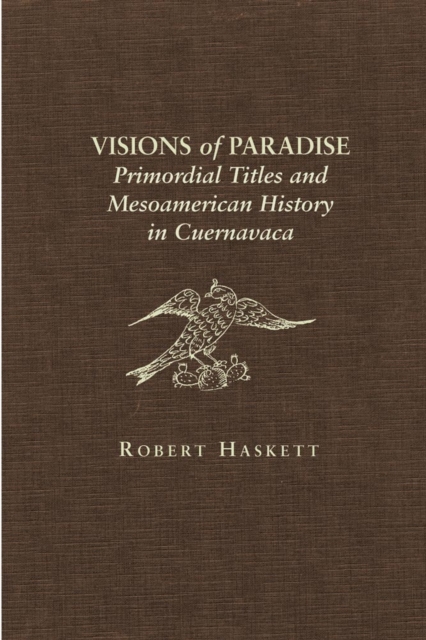Cuernavaca, often called the “Mexican Paradise” or “Land of Eternal Spring,” has a deep, rich history. Few visitors to this modern resort city near Mexico City would guess from its Spanish architecture and landmarks that it was governed by its Tlalhuican residents until the early nineteenth century. Formerly called Cuauhnahuac, the city was renamed by the Spanish in the sixteenth century when Hernando Cortés built his stone palacio on its main square and thrust Cuernavaca into the colonial age. In Visions of Paradise, Robert Haskett presents a history of Cuernavaca, basing his account on an important body of late-seventeenth-century historical records known as primordial titles, written by still unknown members of the Native population. Until comparatively recently, these indigenous-language documents have been dismissed as “false” or “forged” land records. Haskett, however, uses these Nahuatl texts to present a colorful portrait of how the Tlalhuicas of Cuernavaca and its environs made intellectual sense of their place in the colonial scheme, conceived of their relationship to the sacred worlds of both their native religion and Christianity, and defined their own history. Surveying the local history of Cuernavaca from precontact observations by the Aztecs through postclassic times to the present, with a concentration on early colonial times, Haskett finds that the Native authors of the primordial titles crafted a celebratory history proclaiming themselves to be an enduringly autonomous, essentially unconquered people who triumphed over the rigors of the Spanish colonial system.










